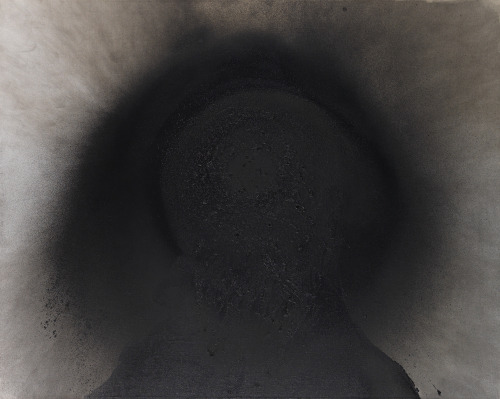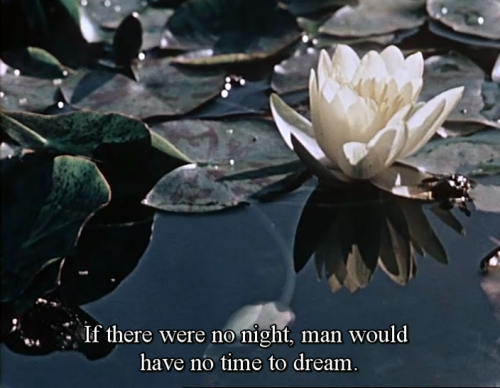Otto Piene (German, 1928-2014), Black Yang, 1985. Oil, Traces Of Fire And Smoke On Canvas, 80 X 100 Cm.

Otto Piene (German, 1928-2014), Black Yang, 1985. Oil, traces of fire and smoke on canvas, 80 x 100 cm.
More Posts from Raskopal and Others

Bianca Blakeney by Sam Crawford for CAP 74024 Magazine April 2022
“A little darkness, in itself, at the time, is nothing. You think no more about it and you go on. But I know what darkness is, it accumulates, thickens, then suddenly bursts and drowns everything.”
—
Samuel Beckett, Malone Dies

Nell Dorr, 1939
https://www.instagram.com/likalinea/

Pierre Boucher, Femme-fleur, inversion négatif-positif, solarisation et photogramme, 1937

NOMAD. Collection and Art direction by @nicolabortoletto - Pictures by @evelin_peach - Model @thomasdaruos https://www.instagram.com/p/CHmsCiIMfbb/?igshid=1etaswwv9kw89

In your two arms rocking I am quietly In my two arms rocking you are quietly In your two arms I am a child, listening. In my two arms you’re the child, I’m listening With your arms you hold me tight when I am scared With my arms I hold you tight and I’m not scared In your arms even the silence of death won’t frighten me. In your arms I’ll fall through death as though falling through a dream.

Sapovnela (Otar Iosseliani, 1959)
EVA FERRI: You insist on the centrality of the writing, you called it a chain that pulls up water from the bottom of a well. What are the features of your approach to writing?
ELENA FERRANTE: I work well when I can start from a flat, dry tone, that of a strong, lucid, educated woman, like the middle-class women who are our contemporaries. At the beginning I need curtness, terse, clear formulas that are free of affectations and demonstrations of beautiful form. Only when the story begins to emerge with assurance, thanks to that initial tone, do I begin to wait with trepidation for the moment when I will be able to replace the series of well oiled, noiseless links with a rusty, rasping series of links and a pace that is disjointed, agitated, increasing the risk of absolute collapse. The moment I change register for the first time is both exciting and anguished. I very much enjoy breaking through my character’s armor of good education and good manners, upsetting the image she has of herself, undermining her determination, and revealing another, rougher soul; I make her raucous, perhaps crude. I work hard to make the fracture between the two tonalities surprising and also to make the re-entry into the tranquil narration happen naturally. While the fracture comes easily—I wait for that moment, and slip inside it with satisfaction—I very much fear the moment when the narrative has to compose itself again. I’m afraid that the narrating “I” won’t be able to calm down. But above all, now the readers know her calm is false, that is won’t last, that the narrative orderliness will break up again.
— Elena Ferrante, Frantumaglia, 2016







Andrey Tarkovsky: A Cinema Prayer (Andrey A. Tarkovsky, 2019)
-
 maxxcalifornia liked this · 3 weeks ago
maxxcalifornia liked this · 3 weeks ago -
 metoxxi1 liked this · 4 weeks ago
metoxxi1 liked this · 4 weeks ago -
 onwinedarkseas reblogged this · 4 weeks ago
onwinedarkseas reblogged this · 4 weeks ago -
 froggy-heaven liked this · 1 month ago
froggy-heaven liked this · 1 month ago -
 madame-grimdark-blog liked this · 1 month ago
madame-grimdark-blog liked this · 1 month ago -
 electronickryptonitegladiator liked this · 1 month ago
electronickryptonitegladiator liked this · 1 month ago -
 gravesend666 liked this · 1 month ago
gravesend666 liked this · 1 month ago -
 xeenep liked this · 1 month ago
xeenep liked this · 1 month ago -
 onmyway-santafe liked this · 1 month ago
onmyway-santafe liked this · 1 month ago -
 the-magnus-protocol reblogged this · 1 month ago
the-magnus-protocol reblogged this · 1 month ago -
 majestativa liked this · 1 month ago
majestativa liked this · 1 month ago -
 alto-and-soprano liked this · 1 month ago
alto-and-soprano liked this · 1 month ago -
 wyrdhounds reblogged this · 1 month ago
wyrdhounds reblogged this · 1 month ago -
 mercury1998 reblogged this · 1 month ago
mercury1998 reblogged this · 1 month ago -
 vanillabreath reblogged this · 1 month ago
vanillabreath reblogged this · 1 month ago -
 difrakse liked this · 1 month ago
difrakse liked this · 1 month ago -
 aikotnka reblogged this · 1 month ago
aikotnka reblogged this · 1 month ago -
 aikotnka liked this · 1 month ago
aikotnka liked this · 1 month ago -
 necromarxism liked this · 1 month ago
necromarxism liked this · 1 month ago -
 fknblkbarbie liked this · 1 month ago
fknblkbarbie liked this · 1 month ago -
 dandyphobia reblogged this · 1 month ago
dandyphobia reblogged this · 1 month ago -
 delainey reblogged this · 1 month ago
delainey reblogged this · 1 month ago -
 thetinyhole liked this · 1 month ago
thetinyhole liked this · 1 month ago -
 solemnssmallworld liked this · 2 months ago
solemnssmallworld liked this · 2 months ago -
 erotomechanixxx liked this · 2 months ago
erotomechanixxx liked this · 2 months ago -
 retailther4py liked this · 2 months ago
retailther4py liked this · 2 months ago -
 1712117121 reblogged this · 2 months ago
1712117121 reblogged this · 2 months ago -
 devilsmerlot reblogged this · 2 months ago
devilsmerlot reblogged this · 2 months ago -
 mustaaaaaaaaaaaaaaaaaaard reblogged this · 2 months ago
mustaaaaaaaaaaaaaaaaaaard reblogged this · 2 months ago -
 bitchyaesthetic reblogged this · 2 months ago
bitchyaesthetic reblogged this · 2 months ago -
 notquotenrotkopf liked this · 2 months ago
notquotenrotkopf liked this · 2 months ago -
 kranestarr liked this · 2 months ago
kranestarr liked this · 2 months ago -
 yourenvy69 reblogged this · 2 months ago
yourenvy69 reblogged this · 2 months ago -
 k1ll3rqu33n liked this · 2 months ago
k1ll3rqu33n liked this · 2 months ago -
 devilsmerlot reblogged this · 2 months ago
devilsmerlot reblogged this · 2 months ago -
 antialibie reblogged this · 2 months ago
antialibie reblogged this · 2 months ago -
 thischarlatan liked this · 2 months ago
thischarlatan liked this · 2 months ago -
 tomorrowisneverpromised reblogged this · 2 months ago
tomorrowisneverpromised reblogged this · 2 months ago -
 jo-ia reblogged this · 2 months ago
jo-ia reblogged this · 2 months ago -
 lost90light liked this · 2 months ago
lost90light liked this · 2 months ago -
 devilsmerlot reblogged this · 2 months ago
devilsmerlot reblogged this · 2 months ago -
 proximitytogod liked this · 2 months ago
proximitytogod liked this · 2 months ago -
 transfuser reblogged this · 2 months ago
transfuser reblogged this · 2 months ago -
 transfuser liked this · 2 months ago
transfuser liked this · 2 months ago -
 goofyboymadness reblogged this · 2 months ago
goofyboymadness reblogged this · 2 months ago -
 bloodaslube reblogged this · 2 months ago
bloodaslube reblogged this · 2 months ago -
 bookofthenewsun liked this · 2 months ago
bookofthenewsun liked this · 2 months ago
